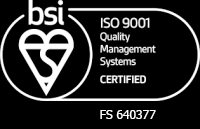Digital transformation is a critical endeavour for organisations aiming to stay competitive in today’s rapidly evolving market.
However, a staggering 70% of these projects fail to meet their objectives, leading to significant financial losses and missed opportunities. Understanding the root causes of these failures and exploring solutions like the Smart Industry Readiness Index (SIRI) can help organisations navigate their transformation journeys more effectively.
Common Reasons for Failure in Digital Transformation Projects
Several factors contribute to the high failure rate of digital transformation initiatives:
Lack of Clear Strategy and Objectives
Without a well-defined roadmap, organisations struggle to align digital initiatives with business goals, leading to disjointed efforts and resource wastage.
Insufficient Data Management
Effective digital transformation relies on robust data strategies. In the UK public sector, nearly two-thirds (65%) of organisations lack an overarching data strategy, hindering their transformation efforts.
Employee Resistance and Cultural Barriers
Change can be daunting, and without proper change management, employees may resist new technologies and processes. This resistance is a significant factor, with studies indicating that 70% of digital transformation projects fail due to employee resistance.
Technical Challenges with Legacy Systems
Outdated infrastructure can impede the integration of new technologies, causing delays and increased costs.
Overambitious and Complex Initiatives
Organisations often undertake large-scale projects without adequate planning, leading to complexity and eventual failure.
The Financial Impact of Failed Transformations
The financial repercussions of unsuccessful digital transformation projects are substantial. Globally, businesses waste approximately $2.3 trillion on failed digital transformation programs.
In the UK, large companies are estimated to lose around £258 billion annually due to these failures.
Introducing the Smart Industry Readiness Index (SIRI)
To mitigate these challenges, the Smart Industry Readiness Index offers a structured framework to guide organisations through their digital transformation journeys. Developed by the Singapore Economic Development Board and backed by the World Economic Forum, SIRI assesses a company’s readiness across three fundamental building blocks: Process, Technology, and Organisation.
How SIRI Enhances Transformation Success
SIRI objectively evaluates an organisation’s current state utilising a robust framework of business dimensions, identifying strengths and areas for improvement, which helps in creating a tailored transformation roadmap.
By aligning digital initiatives with business objectives, SIRI ensures that transformation efforts are purposeful and goal-oriented. SIRI emphasises the importance of talent readiness, encouraging organisations to invest in employee training and change management to reduce resistance.
With a focus on robust data management practices, SIRI aids organisations in developing effective data strategies, addressing a common pitfall in many transformation projects. In a nutshell, SIRI provides a clear roadmap for implementing scalable solutions, ensuring that digital transformation efforts are sustainable in the long term.
BrookConsult: Driving Successful Digital Transformation with SIRI
BrookConsult provides expert SIRI assessments to help organisations navigate their digital transformation journeys with confidence.
By leveraging the SIRI framework, BrookConsult identifies key areas for improvement, develops tailored strategies, and ensures businesses are equipped with the right tools and knowledge to succeed.
With a focus on process optimisation, technology adoption, and workforce readiness, BrookConsult supports companies in overcoming the common challenges of digital transformation, reducing failure rates, and maximising returns on investment.
Real-World Success with SIRI
Organisations that have adopted SIRI have reported significant improvements in their transformation outcomes.
For instance, SEW-EURODRIVE leveraged SIRI to modernise its Singapore facility, resulting in enhanced flexibility and productivity. (incit.org)
Digital transformation is fraught with challenges, but understanding the common pitfalls and employing structured frameworks like the Smart Industry Readiness Index can significantly improve success rates.
By focusing on clear strategies, robust data management, employee engagement, and scalable solutions, organisations can navigate the complexities of digital transformation more effectively and achieve their desired outcomes.
SIRI has been adopted as the national digital maturity standard in many countries, more and more UK businesses have engaged with SIRI, act now and begin your digital transformation journey.
To find out how we can help your business succeed contact us




